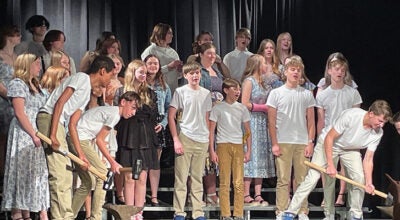Session over, lawmakers already preparing to come back
Published 7:01 am Wednesday, May 20, 2020
|
Getting your Trinity Audio player ready...
|
By Tim Pugmire
One thing Democrats and Republicans agreed on at the Minnesota Capitol after the legislative session ground to an unproductive halt early Monday: Things changed dramatically once the COVID-19 health crisis hit. And they said the pandemic had an enormous impact on what they were able to accomplish this year.
Left undone was one of the top priorities, a package of public works construction projects funded by the sale of state bonds commonly known around the Capitol as the bonding bill.
Neither the House nor Senate could get the bipartisan supermajority support needed to pass a public works bill on the final weekend.
“That takes collaboration,” Gov. Tim Walz said Monday. “It takes bipartisan and bicameral cooperation. So, we know we have work to do.”
Walz wanted a $2 billion bill. He acknowledged that he called Senate Democrats Sunday and asked the members of his own party to vote against the $998 million bill offered by Senate Republicans, because he felt it was inadequate.
“It’s a shame,” he said. “But I will not give up. We go around roadblocks. We figure out things to get there.”
House Republicans voted against the bigger public works bill because of concerns about its size, as well as concerns about the governor’s ongoing use of emergency powers.
Walz said he got some of the things he wanted, including an affordable insulin program and raising the age to buy tobacco to 21.
Republican Senate Majority Leader Paul Gazelka said he thinks a bonding bill can still pass when lawmakers return next month. The special session will happen automatically if Walz extends a peacetime emergency that expires on June 12.
Gazelka said he thinks part of the problem in the regular session came from negotiating remotely due to COVID-19 concerns.
“We did have one meeting where the four leaders got together yesterday. So, that was a breakthrough, because you can see and hear and listen and feel what the four people think. Without that on a regular basis, it just made it harder,” he said.
Another issue left up in the air was the resolution of state employee contracts for 50,000 workers. The DFL House approved the agreements. But Senate Republicans voted to prevent a second-year pay raise from taking effect.
The Walz administration is studying the outcome and trying to determine whether votes in both the House and Senate mean that legally the contracts should be considered ratified. Minnesota Management and Budget Commissioner Myron Frans said lawmakers are not allowed to modify negotiated contracts.
Gazelka disagreed.
“In our mind, that would be an overreach of power,” he said. “But we really want to come together and work on it in a bipartisan way, a way that’s fair. Give them last year’s raise but not this year’s raise.”
Despite the rocky ending, DFL House Speaker Melissa Hortman said lawmakers worked well together across party lines to pass the state’s initial responses to the pandemic, but she said that spirit fizzled later.
Hortman said the health crisis struck at a critical time in the session, but she is proud of how the Legislature was able to adapt.
“We moved from being an in-person Legislature to a fully online and remote functioning Legislature in a very short period of time,” she said, “ faster than the U.S. Congress and faster than most Legislatures around the country.”





